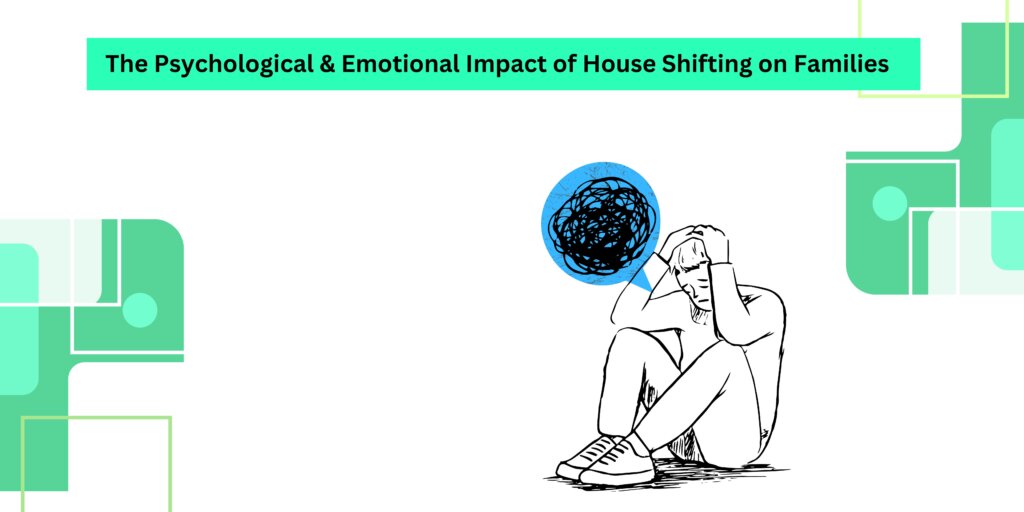Moving to a new home is a major life event that goes beyond the practicalities of packing. It triggers a range of emotions and psychological stress, profoundly affecting individuals and families. House shifting often brings a sense of leaving behind familiar surroundings, leading to feelings of anxiety, confusion, and a sense of being lost.

Psychological & Emotional Impact of House Shifting
1. Change and Stress
Transitioning from your old house to a new place brings significant changes that can cause stress. Adapting to new surroundings and adjusting family routines and social networks can be challenging. Children may face difficulties leaving behind friends and familiar schools, requiring time to adjust. To ease stress, consider organising a welcoming party or taking your children on nearby things to help them feel more comfortable in their new environment.
2. Coping with Loss
Nostalgia can set in as you reminisce about watering plants in your old home or engaging in small chit-chats with neighbors. If you have cherished memories associated with your old house, such as anniversaries or birthdays, it’s natural to feel a sense of loss. Emotions like sadness, nostalgia, and even anger may arise, and it’s important to give yourself time and self-care to process these feelings.
3. Family Dynamics
House shifting can significantly impact family dynamics, as different family members may have varying attitudes and expectations about the move. Children may struggle with leaving behind friends and familiar surroundings, while adults may feel pressure to manage logistics and finances. Effective communication is key to navigating these challenges and minimizing conflicts. By working together as a family, you can create a comprehensive plan for the move and provide support to each other during the transition.
4. Adaptation and Resilience
Although moving to a new house presents challenges, it also offers opportunities for growth and adaptation. Adjusting to new surroundings enables individuals and families to develop resilience and learn new skills. It provides a chance to explore different environments, communities, and cultures. Additionally, moving allows for decluttering and simplifying, offering a fresh start. Stepping out of your comfort zone and embracing change can lead to the establishment of new relationships, a sense of community, and the creation of a new sense of home. The process becomes an adventure and an opportunity for personal growth.
5. Creating a Sense of Home
Establishing a sense of home in a new house can be a fulfilling experience. Experiment with decorating to make the space your own, explore the community to discover its offerings, and establish new social connections. By embracing the change and actively engaging in your new environment, you and your family can build a new sense of home and find joy in the process.
Conclusion
The process of adapting to house shifting offers an opportunity for growth and the development of resilience. By acknowledging the psychological and emotional impact of this transition, we gain a deeper understanding of the challenges and rewards involved. Embracing change, fostering effective communication, and creating a sense of home contribute to a successful and fulfilling house shifting experience.
Packers and Movers in India




